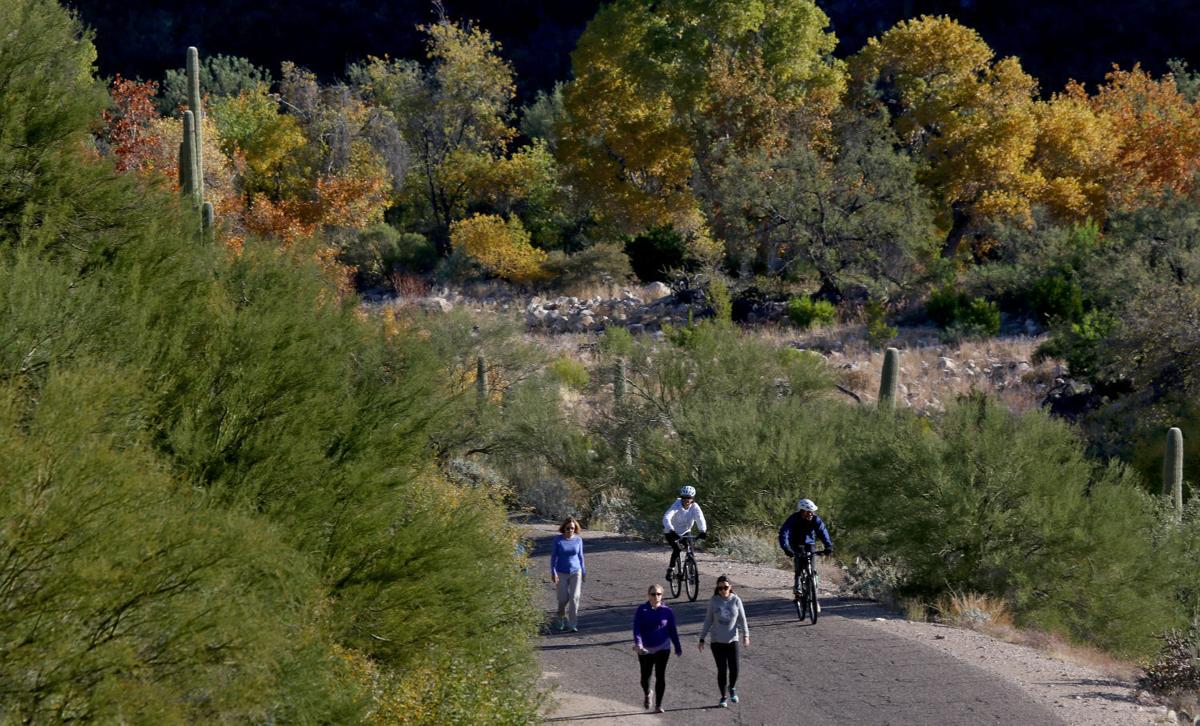This month’s record-breaking heat poses dangers for hikers who venture out without sufficient water, sun protection or common sense, safety experts warn.
Tucson’s temperature soared to 90 degrees Wednesday with spring still a month away, and daily highs are expected to remain in the 80s into this week.
“The unprecedented heat that we’re having can catch people off guard,” said Richard Kunz, a longtime member of the Southern Arizona Rescue Association. “Most of our trails are on sunny slopes. It can be fairly cool in the morning and be 90 degrees later in the day” — putting unprepared hikers and other outdoor recreationists at risk.
Brian Keeley, a spokesman for the Northwest Fire District, which often takes part in searches and rescues, noted that the recent hot weather is “not typical for February. It can be a good thing, but only if you’re prepared for it.”
SAFETY ADVICE
Kunz and Keeley offered tips for staying safe on trails as heat dominates in this normally mild-weather season.
- Hydration:
- “Take more water than you think you’ll need,” said Kunz. “We drink less water when it’s cool. But as soon as it warms up, we’re sucking that water down like crazy. When you’re half out of water, turn around and go back the way you came.”
- Sun protection:
- Wearing sunscreen can protect your skin, “but wearing light-colored clothing is the ideal thing,” Kunz said. “Definitely wear a hat with a tail on it to shade the back of your neck.”
- Planning:
- “If you’re going on a hike, make sure you let someone know where you plan on going, when you plan on departing, and when you expect to return,” Keeley said. “And try to avoid going alone.”
- Energy food:
- “Try to have some energy bars or light snacks with you on the hike,” Keeley said.
- Technology:
- Carry a cellphone and make sure it’s charged, Keeley said, but keep in mind that you might not have cell coverage in some mountains and canyons.
- Snakes and bees:
- “Keep an eye out for rattlesnakes and bees,” Kunz said. “They’re out there” during the uncommonly warm weather.
- Common sense:
- “The important thing with common sense,” Kunz said, “is to use it.” Passing up a shady spot where you could take a rest or neglecting to drink water regularly on a hike are examples of lapses in common sense.





